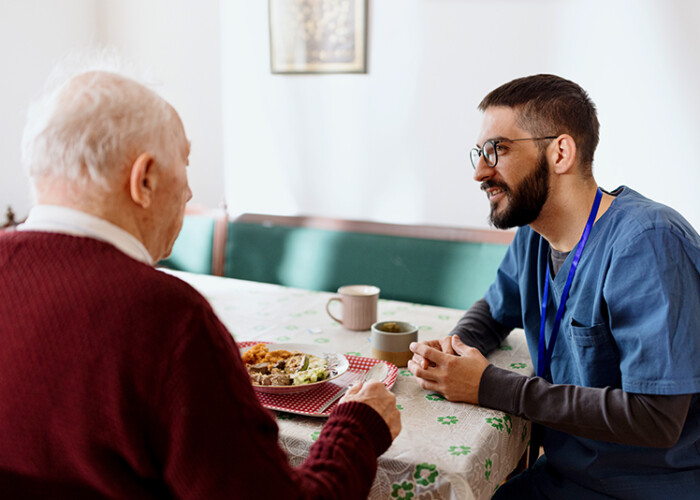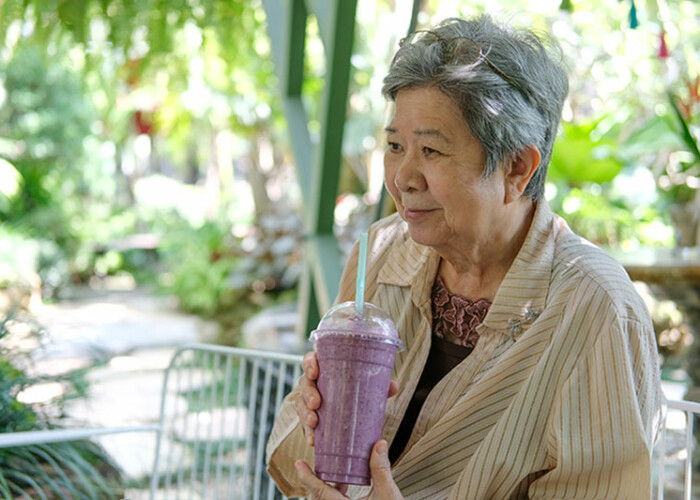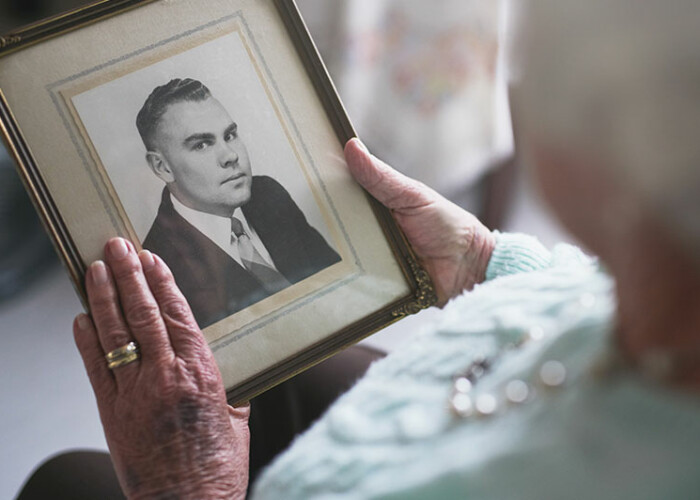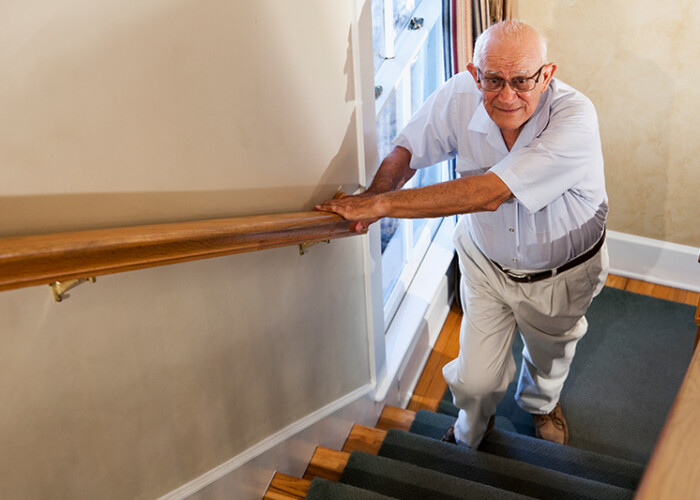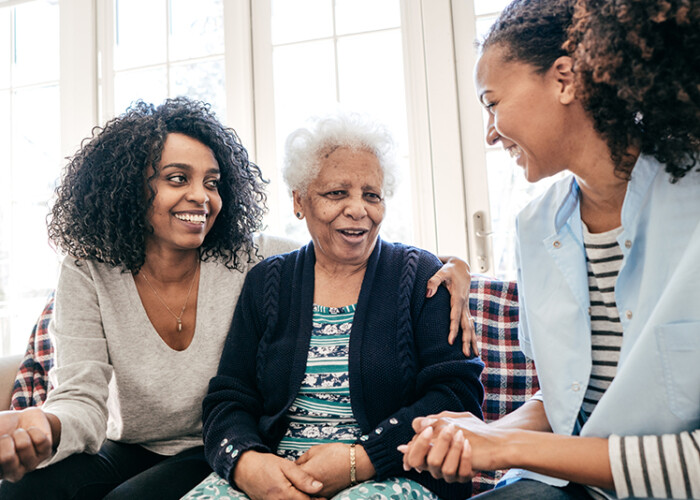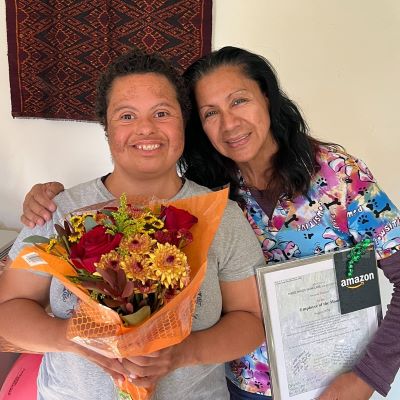Senior Safety
Noticing Changes in a Senior’s Eating Behaviors? Here’s Why.
There are a number of reasons that could be causing changes in a senior’s eating behaviors.
Following the indulgence of the holiday season, many of us decide to cut back on consumption of calories. But when an older adult does not want to eat altogether, or is making unbalanced or unhealthy dietary choices, it’s important to look for the reason behind changes in a senior’s eating behaviors. This is a first and crucial step in promoting healthier eating habits.
Dysphagia Tips: Using Beverage Thickeners for Swallowing Disorders
These dysphagia tips will help someone you love adapt to beverage thickeners.
Unless you have dysphagia, a swallowing disorder, it is likely you have not given much serious thought to the various textures and consistencies of the liquids in your daily diet. When you are feeling thirsty, nothing hits the spot like an ice-cold glass of water. On a hot summer day, you may crave a cool milkshake. And when you are recuperating from the flu, a warm bowl of soup really hits the spot.
Do You Know When and How to Downsize for Seniors with Dementia?
Seniors with dementia can benefit from downsizing.
It’s clear that the family home is just too overwhelming for Mom and Dad to care for. A small home is for sale just around the corner from you that’s ideal: a beautiful flower garden in the front yard, a sunny, cheerful kitchen, and no stairs to navigate. Now it is time to begin the downsizing process. The only problem? Mom has dementia.
Any level of change can be very challenging for a senior with dementia. Leaving the familiarity of home and moving into a brand new one can enhance feelings of anxiety and agitation, but there are strategies to ease the transition.
Take your time. It can be your natural thought to make this process as quick as possible – like ripping off a band-aid. However, a much better approach in … Read More »
Broken Heart Syndrome: How to Help a Loved One Who Is Grieving
It’s not easy to know how to help a loved one who is grieving, but these tips are a great place to start.
In his documentary about grief, George Shelley uses an analogy of glitter. Toss a handful of glitter into the air, and it’s going to settle into all the cracks and crevices of the room, impossible to fully sweep up and remove. Those who have lost a loved one can relate. Yet in certain instances, grief could be so overwhelming that it could result in a serious and aptly named condition: broken heart syndrome.
Broken heart syndrome is a very real physical condition from the intense stress experienced in certain types of grief (such as one spouse losing the other after decades of marriage). The medical term is takotsubo cardiomyopathy, a temporary enlargement of the heart … Read More »
Navigating the Unique Challenges of Older Adults in the LGBTQ+ Community
Older adults in the LGBTQ+ community face a number of hurdles that we all need to understand.
When it comes to growing older, the experiences of seniors are as diverse as the colors of the rainbow. Within this spectrum, older adults in the LGBTQ+ community often face unique challenges that warrant our attention and understanding. As a leading home care provider in Novato and the surrounding areas, we know that fostering inclusivity is crucial for providing support to all members of our community. It begins by understanding some of the hurdles specific to the LGBTQ+ population that need to be overcome.
Isolation and Social Stigma:
One of the key challenges confronting LGBTQ+ seniors is the potential for isolation and the enduring social stigma that has persisted throughout their lives. Many individuals from this community grew up in an … Read More »
Take These Steps to Avoid Overmedication and Adverse Medication Reactions in Seniors
Taking too much or too little of a medication or taking it the wrong way can lead to adverse medication reactions in seniors.
The days of “take two aspirin and call me in the morning” have morphed into “take two of these…and two of these…and maybe one of those, too!” Nearly forty percent of seniors are taking at least five different prescription medications each day – not to mention vitamins, supplements, and OTC meds. It is easy to understand why overmedication and adverse medication reactions in seniors are extremely common.
Take these actions to avoid medication problems for someone you love:
Make a list, and check it twice. Create a list of every one of the medications – both over-the-counter and prescription – that the person is currently taking. Share the list with all of their healthcare providers, and … Read More »
Watch for These Early Signs of Mobility Problems in Older Adults
All family caregivers need to know the early signs of mobility problems in older adults in order to prevent falls or other serious injuries.
Benjamin Franklin certainly had it right: An ounce of prevention is really worth a pound of cure. When it comes to noticing and addressing the early signs of mobility problems in older adults, prevention is a must. Falls in seniors lead to 3 million emergency room visits, 300,000 hip fractures, and 32,000 deaths every year, according to research by the CDC.
Preempt a tragedy by keeping an eye out for these warning signs of increasing mobility issues in older loved ones:
Experiencing dizziness. Dizziness and issues with balance can develop from a variety of contributing factors that ultimately cause problems with mobility. It’s important to discover why these issues are taking place and address them … Read More »
The Final Stage of Alzheimer’s: What to Expect
Being prepared for the final stage of Alzheimer’s is key to continuing to help make life as meaningful as possible for someone you love.
The journey through Alzheimer’s disease can be compared to navigating a winding road that spans years, riddled with intermittent stops, starts, unexpected twists, and a plethora of unknowns. As the dedicated caregiver for an individual grappling with dementia, having foresight about what to expect around the next bend is paramount. This knowledge empowers you to not only be well-prepared but also to administer the most fitting and compassionate level of care in the final stage of Alzheimer’s.
Alzheimer’s, being a highly individualized experience, manifests uniquely in each person. Yet there are certain commonalities at every stage of the disease. When an individual transitions into the last stage, discernible challenges emerge, including struggles with eating … Read More »
3 Steps to Better Advocate for an Aging Parent
Trusting someone you love to the care of someone else is never easy, particularly for a senior family member. Whether at home or in a facility, you’ll have questions you need answered. You will also want to be ready to advocate for an aging parent to proactively address any potential problems and also to quickly take care of issues that do take place.
For instance, review the following common situations and how to most effectively advocate should they arise with an older adult you love:
The person has dementia. A loved one with Alzheimer’s might not be able to effectively communicate their wishes and needs. As an example, a new caregiver may not realize that Dad wears inserts in his shoes and she may put his shoes on each day without them. Dad may not know how to communicate this … Read More »
How to Get Away From It All While Caring for an Older Loved One
Dreaming of that perfect vacation while listening to friends and family share tales of exciting getaways? The desire to travel and escape reality for a little while is universal, but when you are caring for an older loved one, it might seem like an unattainable luxury. However, taking a break is not just possible; it’s crucial for both your well-being and the well-being of your older family member.
Why Taking a Break Matters
Neglecting self-care can lead to burnout and depression, ultimately affecting the quality of care you provide. So how can you step away and know that the individual you’re caring for will remain safe and well while you’re gone?
These tips are a great place to start:
Talk About It. Initiating a conversation with the older adult about your upcoming break is a crucial step. Transparency builds trust … Read More »


